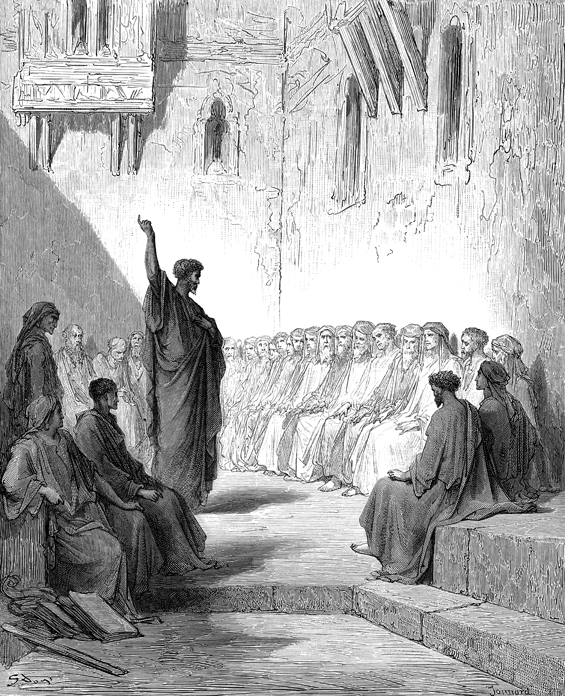
In recent years, our Archbishop has been calling us to adopt an “apostolic mindset”. The apostles, after all, faced challenges very similar to us: surrounded by idols, decadence, moral license, corrupt politics. And yet, those very apostles evangelized the nations, God’s grace working in them to bring about what can only be described as a miraculous transformation of the culture in which they lived. Should we want the Lord to do the same for our culture today, then we must adopt their same “apostolic mindset”, which Archbishop Aquila has summarized as five qualities: unique calling from the Father, costly imitation of Christ, utter reliance on the Holy Spirit, joyfully countercultural witness, and conviction of the primacy and power of the Gospel. Let us turn to Acts of the Apostles to see this mindset at work in the apostles.
To begin with, it is worth an introduction to Acts of the Apostles in this first blog of the series. Acts is essentially part two of Luke the Evangelist’s writings, a sequel, if you will, to his Gospel. Only Acts is now the early life of the Catholic Church, experiencing Herself the life of Christ from the Gospel. Because the Church is the extension/perpetuation of the Incarnation through time, the Church tasked with carrying out the salvific mission of Christ in the Gospels.
As regards dating, the completion of Acts is roughly around the 62-64AD timeframe. A couple of things clue us into this timeframe. Firstly, Acts ends abruptly with St. Paul’s first of two Roman imprisonments, the date of this being 60-64AD, so Acts couldn’t have been written any earlier than that. But then Luke makes no mention of Nero’s famous fire, setting Rome ablaze in 64AD, which Nero blamed on Christians and used as a reason to start persecuting the Church. Nor does Luke mention the martyrdoms of Peter and Paul in 67AD, nor the destruction of the Temple in 70AD, all too crucial of events to ignore. Unless, of course, he’s writing before those events have occurred. Thus, Acts is generally dated to 62-64AD, ending with Paul imprisoned in Rome for the first time. The time period covered in Acts being roughly 30 years – from the time of Christ’s ascension 40 days after the resurrection to Paul’s first Roman imprisonment in 60-64AD.
However, despite its name, we can’t see Acts as a history of all that was done by all of the apostles – they were all dispersed across different nations and did much more than what’s recorded in Acts. What we do have is a glimpse of the first establishment of the Catholic Church (chs 1-2), followed by a small part of St. Peter’s preaching and actions (chs 3-9), followed by a more particular account of St. Paul’s apostolic labors (chs 10-28). A focus on Peter and Paul as the two great shepherds of the Lord, with their preaching and actions representative of all the apostles.
And Peter and Paul, by extension the other apostles, are framed in Acts as God’s shepherds, the apostles fulfilling God’s promise of centuries earlier: “I will give you shepherds after my own heart, who will feed you with knowledge and understanding.” (Jer 3:15). What’s the proof of their authority? Miracles, as in the days of Moses, Elijah, Elisha, and Jesus Himself, wherein miracles served as proof of doctrine and God’s presence in those men. The flock of the shepherds being “the Way”, code name for the early Christian movement. Isaiah, whose visions of the messianic age focus on “the way” of the Lord, spoke of God effecting a new Exodus by leading His people on a new way from sin to salvation. So quite naturally, the early Christians adopted this title of “the Way” to lay claim to the promises of Isaiah and assert their identity as the newly redeemed people of God. This “way” being Christological, passing through Jesus, “the way, the truth, and the life”, as He says. With His way being a path of suffering…the way of the cross, as we call it. The apostles, of course, learned that from Christ, then live and lead it themselves in Acts of the Apostles.

